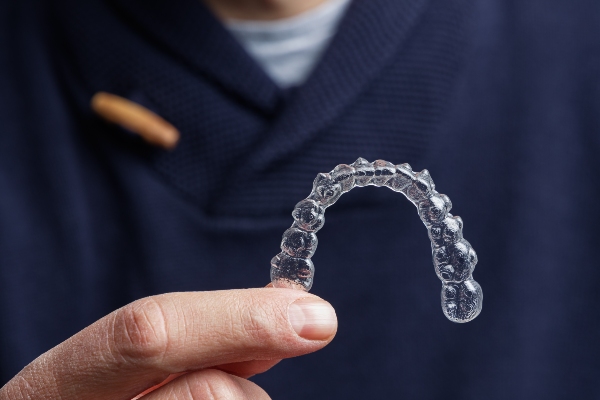How Dental Implants Improve Your Jawbone

dental implants are the preferred option for replacing lost teeth. They are the perfect option if you want a tooth restoration that has the natural appearance and function of a healthy tooth. Dental bridges and dentures are also excellent choices for restoring lost teeth, but their strength and durability are not comparable. They also help improve the jawbone, and here is why:
Osseointegration
This process, which describes the fusion of the implants with the bone, is what makes dental implants so sturdy. Implants are comprised of titanium posts, which is a biocompatible metal. Therefore, when the post is inserted into the jawbone, the metal and bone integrate. This means that the implant will get the same support that the root of the old tooth had. This is why the implant and attached dental crown have similar strength and functionality as the healthy, natural tooth.
How this affects the jawbone
When a tooth is missing, either due to trauma or infection, the appearance of the smile is not the only thing at risk. Missing teeth can interfere with chewing, speaking and smiling confidently. Also, the bone needs to be continuously stimulated to maintain its structure. Stimulation is provided by the tooth’s root from normal chewing and biting. Once the tooth falls out, the stimulation is lost, and the jawbone starts to deteriorate since the body will stop delivering calcium to that area of the body.
Once the jaw starts to shrink, it could pose a threat to the remaining teeth and could make the face sag or sunken. A significant part of bone resorption begins within a year after losing the tooth. Therefore, it is essential to replace a lost tooth or teeth with dental implants as soon as possible.
Since the dental implant sits inside the jawbone, the act of chewing while eating stimulates the bone. The stimulation provided by a dental implant is identical to that offered by a natural tooth. Therefore, dental implant halts bone resorption to preserve the jawbone and appearance. These restorations not only restore teeth functions, but they also help maintain a youthful countenance.
The implantation process
To know more about dental implants and if you are a suitable candidate, you should book an appointment with the dental office. The dentist will perform a thorough medical and oral examination and take X-rays to assess your jawbone mass. These procedures are necessary to determine your eligibility for the implants. If you qualify, you will receive an appointment for the surgery, during which the metal posts will be inserted into your jawbone.
The osseointegration procedure requires a few months, usually six, but you will be provided a temporary restoration until the bone heals fully. After osseointegration is complete, you will be ready for a dental crown.
In summary
Dental implants help prevent jawbone resorption and preserve your bone mass. This, along with their ability to give you a beautiful smile, is why they are the preferred method of restoring a lost tooth.
Request an appointment here: https://stonecanyondental.com or call Stone Canyon Dental at (972) 226-6655 for an appointment in our Sunnyvale office.
Check out what others are saying about our All-on-4 Dental Implants services on Yelp: All-on-4 Dental Implants.
Recent Posts
Getting a dental crown is a seamless procedure that is done in dental offices every day. There are various reasons to get a dental crown, which will play a role in how the process goes. For example, for those getting a crown to finish the tooth replacement process after an implant has been inserted, the…
If a patient suffers from misaligned teeth or a misaligned bite, Invisalign® clear aligners might be the solution they need to ensure their smiles stay bright – and straight! As one of the most trusted clear aligner systems will help straighten teeth and correct the bite without wires and brackets, meaning that patients can smile…
Your dentist may recommend a dental bridge if your case needs it. Every patient has a different set of needs. Proper assessment allows the dentist to suggest the right dental replacement. Here are the details on when a dental bridge may become your dentist’s recommendation.Dentists often encourage their patients to stop consuming tobacco. Following this…
When it comes to replacing missing teeth, dental bridges are a popular and reliable option that offers versatility by restoring one to four missing teeth in a row. Along with restoring a smile by replacing missing teeth, a dental bridge offers multiple benefits to one's oral health while addressing several issues simultaneously.Tooth loss can occur…







